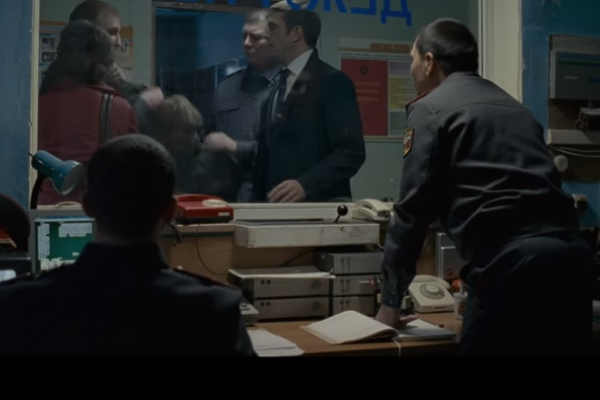When we meet Kolya, the film’s protagonist, he’s in the midst of a long legal battle. He’s about to lose the house he built to the town’s mayor, a paranoid man obsessed with his own job security. Kolya’s already lost in court, but enlists the help of former army buddy Dimitri, a high-powered lawyer, to help him with an appeal. After the appeal’s failure, and some nasty bullying from local officials, Kolya is hit with a seemingly endless avalanche of humiliation and personal catastrophes.
The fishing village depicted in the film is a run-down hamlet characterized by an impressive amount of skeletal remains — and not just the kind that live in the closet. It’s strewn with ruined buildings, wrecked boats, and massive whale skeletons. In our world, the best architecture serves as a testament to man’s accomplishments, but the buildings and bones of Leviathan do exactly the opposite. They’re a constant reminder of decay and the temporary nature of what we mere mortals spend so much energy building and fighting over. Leviathan’s target is corruption in Russia, but its themes of pride, personal struggle, and frustration are universal.
Read the Full Article

